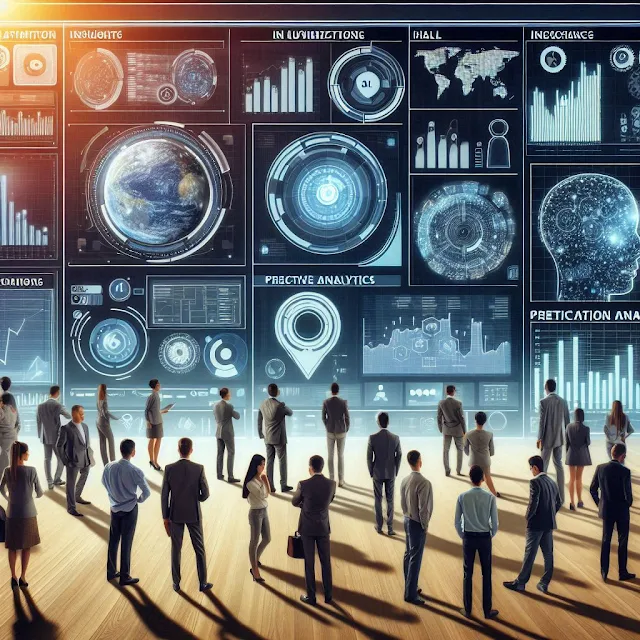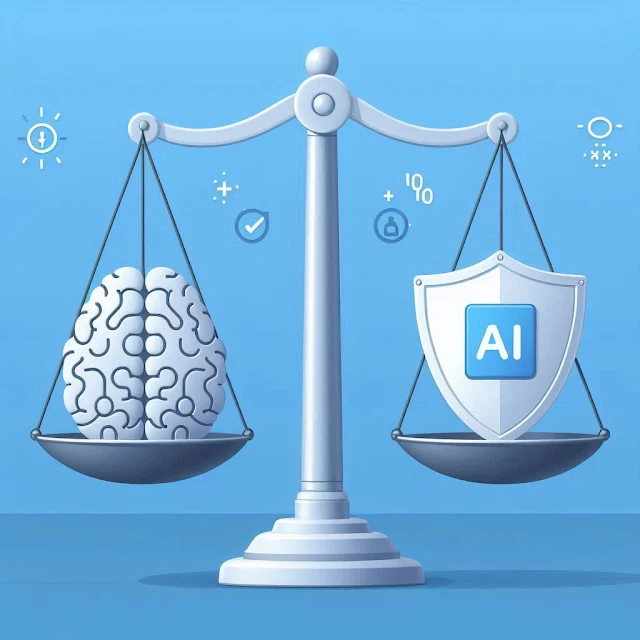Introduction: The Growing Role of AI in Marketing
As AI continues to transform industries, marketing stands at the forefront of this revolution. Experts are increasingly emphasizing the importance of leveraging artificial intelligence to streamline operations, enhance customer experiences, and drive business growth. AI technologies are being used to optimize marketing strategies, personalize content, and predict consumer behavior. In this article, we will dive deep into what experts are saying about the impact of AI on marketing, its future trends, and practical applications.
Section 2: AI and the Future of Personalized Marketing
In the realm of marketing, personalization has always been a key factor for success. But with the rise of AI, the level of personalization achievable has reached new heights. Experts in AI and marketing agree that machine learning algorithms and data-driven insights are revolutionizing how businesses target consumers. By analyzing vast amounts of data, AI helps companies understand consumer behavior and tailor marketing strategies to individual preferences.
Moreover, personalization is not limited to emails or product recommendations. AI-powered chatbots and virtual assistants are enhancing customer interactions in real time, providing personalized responses based on past interactions and preferences. This deep personalization leads to better customer satisfaction, improved engagement rates, and ultimately higher conversion rates. As AI continues to evolve, the scope of personalized marketing will only expand, making it an essential tool for businesses seeking to stay competitive.
Section 3: How AI is Optimizing Marketing Campaigns
AI’s ability to optimize marketing campaigns is one of the primary reasons it’s gaining such widespread attention. Marketers are increasingly using AI tools to improve the efficiency of their campaigns by automating repetitive tasks, predicting outcomes, and delivering optimized content at the right time to the right audience. Experts highlight that AI-driven automation is transforming how campaigns are run, allowing marketers to focus on strategic decision-making rather than manual tasks.
AI can also predict the success of marketing strategies with impressive accuracy. By analyzing historical data and current trends, AI tools provide valuable insights on which tactics will likely yield the best results. This predictive capability allows marketers to allocate resources more effectively, ensuring maximum return on investment. With AI, businesses are now able to run highly targeted, data-driven campaigns that deliver measurable results, improving overall performance and reducing waste.
Section 4: AI in Social Media Marketing: The Game Changer
AI’s impact on social media marketing cannot be overstated. Social media platforms generate massive amounts of data, and AI is at the core of analyzing and utilizing this information to improve marketing efforts. Social listening tools powered by AI help businesses monitor brand sentiment, track competitors, and identify emerging trends in real time. This invaluable data allows marketers to adjust their strategies to remain relevant and timely in an ever-changing landscape.
Experts point out that AI’s ability to optimize ad targeting is another major game-changer for social media marketing. With AI-driven algorithms, platforms like Facebook, Instagram, and Twitter can deliver ads to users who are most likely to engage with them. The precision and efficiency of AI-driven ad campaigns lead to higher engagement, lower costs, and better ROI. Additionally, AI-powered tools help businesses analyze user-generated content, providing deeper insights into customer preferences, needs, and desires.
Section 5: Enhancing Customer Experience with AI in Marketing
Providing an exceptional customer experience is more important than ever. AI plays a pivotal role in enhancing this experience by enabling businesses to anticipate customer needs and personalize interactions. For instance, AI-powered recommendation engines suggest products or services based on past behavior, increasing the likelihood of conversion. Furthermore, chatbots powered by natural language processing (NLP) can engage with customers, answer queries, and solve problems around the clock, improving customer satisfaction and loyalty.
Experts also emphasize AI's ability to drive customer engagement through personalized content. By using machine learning algorithms, businesses can create highly relevant content tailored to individual customer preferences, making interactions more meaningful. Additionally, AI can analyze customer feedback from various channels and use sentiment analysis to adjust strategies, ensuring that the brand stays aligned with customer expectations.
Section 6: The Ethical Considerations of AI in Marketing
While AI offers tremendous opportunities for marketers, it also brings ethical challenges that must be addressed. Experts warn that AI technologies, particularly in data collection and privacy, can raise concerns about consumer trust and transparency. With AI gathering vast amounts of personal data, businesses must ensure that they are using this information ethically and in compliance with data protection regulations.
Additionally, there is the risk of AI becoming too biased if not properly trained. Experts stress the importance of fairness and transparency in AI algorithms to avoid reinforcing stereotypes or making unethical decisions. Ensuring that AI systems are designed with ethical principles in mind is crucial for businesses to maintain consumer trust and protect their reputations.
Frequently Asked Questions (FAQs)
1. What are the main benefits of AI in marketing?
AI helps businesses personalize marketing campaigns, optimize ad spend, and predict consumer behavior. It improves customer engagement, enhances targeting precision, and automates repetitive tasks, saving time and resources.
2. How does AI improve customer experience?
AI enhances customer experience by offering personalized recommendations, real-time chat assistance, and tailored content. AI tools analyze customer data to anticipate needs and preferences, ensuring more meaningful interactions.
3. Is AI ethical to use in marketing?
AI in marketing can be ethical if businesses are transparent about data usage, respect privacy, and avoid bias in algorithms. Companies should follow ethical guidelines and adhere to data protection regulations to maintain consumer trust.
4. Can AI help with social media marketing?
Yes, AI can significantly improve social media marketing by analyzing trends, optimizing ad targeting, and providing insights into user behavior. AI tools also help track brand sentiment and competitor activities.
5. What role does AI play in content creation?
AI assists in content creation by generating personalized articles, blog posts, and social media updates based on audience preferences. It can also help automate content distribution, ensuring it reaches the right people at the right time.










Helpful information very good 😊
ReplyDelete